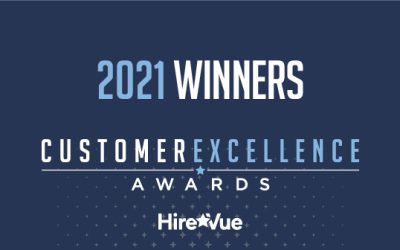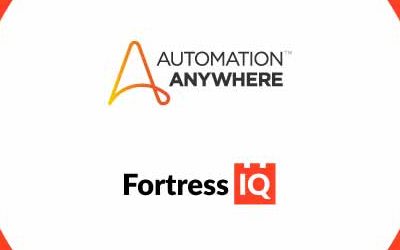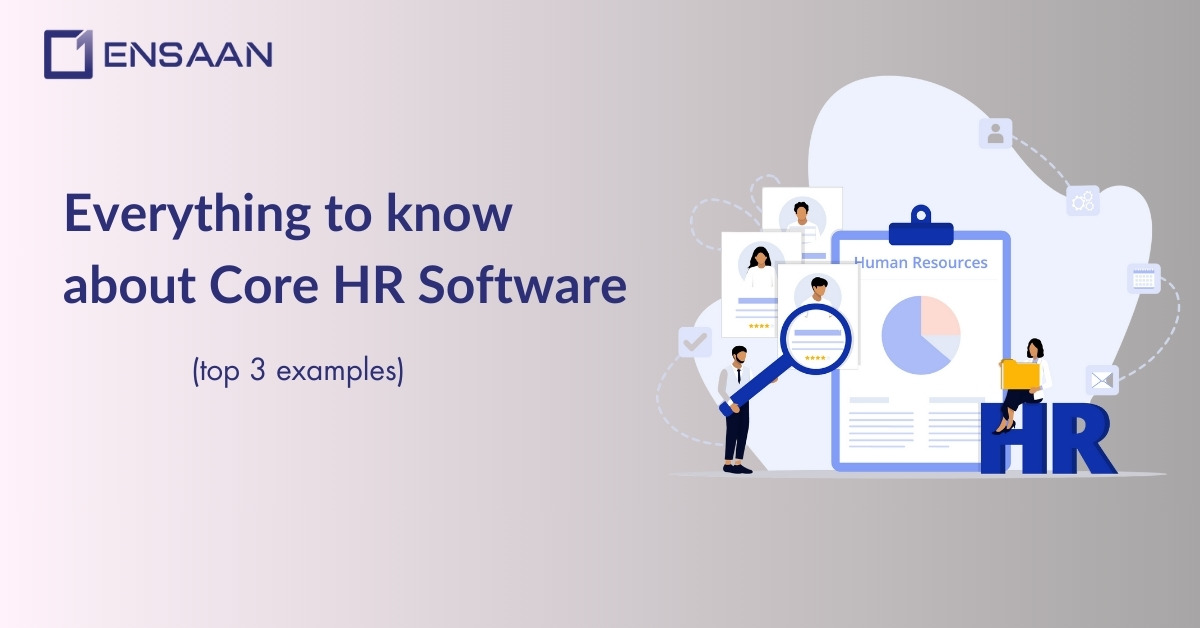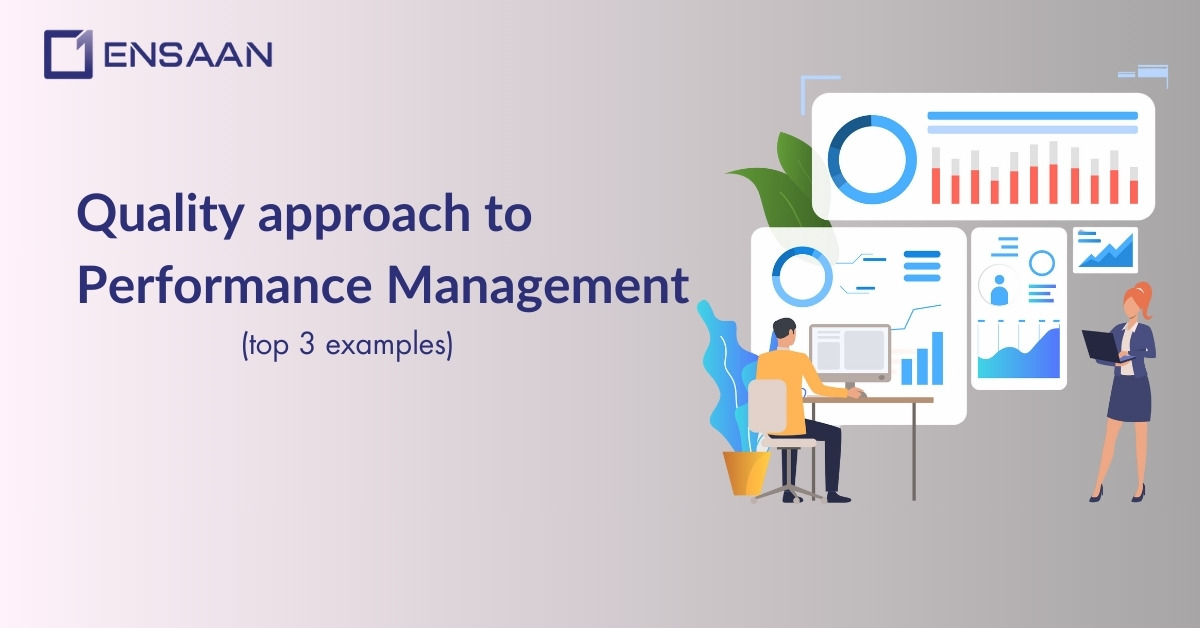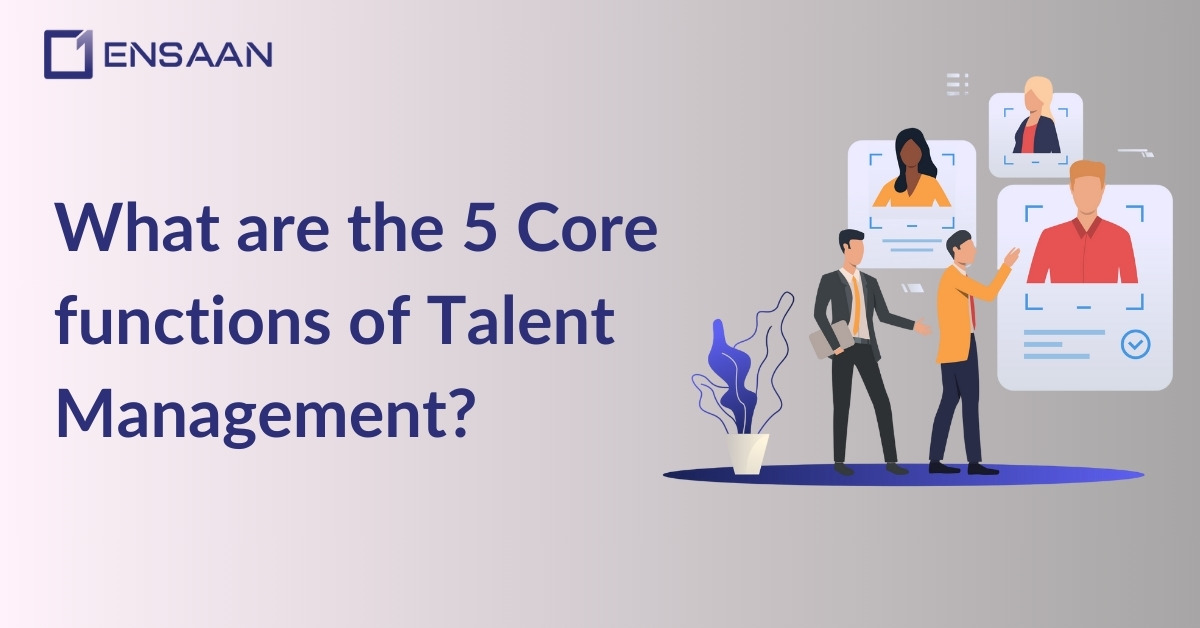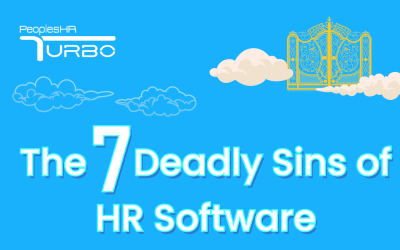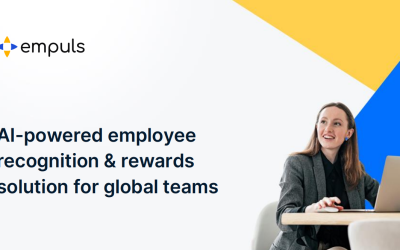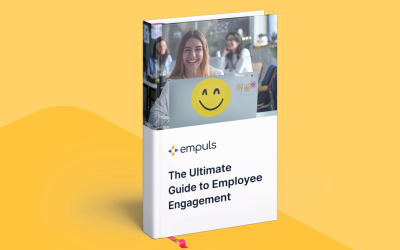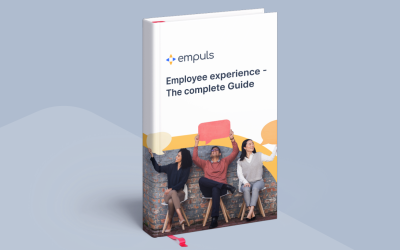The HR space has encountered remarkable changes in the beyond quite a long while, and 2025 is supposed to deliver significantly more progressions.
HR has long since outgrown its focus on administrative duties like hiring, payroll, and compliance.
Human resources are a key factor in determining corporate strategy and organizational cultures in the modern world. HR software plays a crucial role in adapting to these changes by streamlining processes and improving workforce management.
HR’s role has evolved as a result of employee expectations, technology improvements, and the ever-changing nature of the workplace. Implementing the best HR software in UAE, Dubai ensures co
The work environment is changing as 2025 moves close, because of various HR drifts that focus on innovation, representative commitment, prosperity, and comprehensive initiative.
Let’s delve deeper into the key themes that will dominate HR in 2025.
Table of contents
AI’s Impact on Human Resources
Artificial intelligence (AI) is changing the field of HR by working on generally speaking productivity, mechanizing monotonous positions, and offering further experiences.
Businesses may eliminate human error, expedite operations, and make data-driven choices by integrating AI into HR procedures. A closer look at how AI will affect human resources in 2025
Simplifying the Hiring Process
- Screening resumes: Artificial intelligence controlled frameworks can quickly go through resumes and figure out which people, contingent upon principles, best fit the capabilities.
- Communication with applicants: AI chatbots are being utilized more frequently to manage first contacts with applicants, responding to frequently asked queries, setting up interviews, and even carrying out preliminary tests.
- Data-driven hiring strategies: HR departments can gain a better understanding of hiring patterns, compensation standards, and candidate preferences by utilizing AI’s capacity to evaluate large volumes of job market data.
Boosting Workplace Morale
- AI-powered employee surveys: HR departments may get real-time insights into employee sentiment by using AI systems to regularly collect employee input through quick yet frequent questionnaires.
- Advanced analytics: AI can assess commitment information and pinpoint the hidden explanations behind representative discontent or burnout, empowering HR divisions to make a precaution move to raise work fulfillment and degrees of consistency.
- AI systems have the ability to offer employees customized advice on how to improve their general well-being, professional growth, and work-life balance.
Increasing HR Productivity
- Automation of repetitive work: Simulated intelligence innovations can decrease the chance of human error and let loose HR staff individuals’ the ideal opportunity for additional essential endeavors via robotizing dull activities like information input, benefits organization, and finance handling.
- Performance management system: HR managers can use AI to evaluate employee performance information, pinpoint areas in need of improvement, and offer customized feedback.
- Data-driven decision making: AI gives HR managers insightful knowledge about labor patterns, which helps them make wise choices about personnel acquisition, growth, and retention.
The Rise of Hybrid Employment
The Coronavirus flare-up has modified our work process essentially. In spite of the fact that it was first utilized as a transitory arrangement during the pandemic, remote work is becoming typical in many organizations.
A hybrid work model, in which workers predominantly work remotely and in offices, will proliferate in 2025.
Managing Both In Office and Remote Work
- Managing office and remote work: HR offices should make strategies that ensure all laborers, any place they might be, get evenhanded treatment and potential learning experiences.
- Flexible work schedules: Organizations are beginning to give laborers more opportunity to pick where and when they work. HR divisions are liable for pursuing sure that these arrangements are done in a manner that advances effectiveness and cooperation.
- Flexible work schedules: Employers are beginning to provide their staff greater autonomy over where and when they work. HR departments are in charge of ensuring that these agreements are implemented in a way that encourages productivity and collaboration.
Resources for Successful Hybrid Work
- Platforms for virtual collaboration: Slack, Zoom, Microsoft Teams, and other programs allow employees who work remotely and in offices to communicate and collaborate easily.
- Software for measuring performance: No matter what a worker’s area, HR staff can use this product to screen result and objective headway.
- Digital communication tools: In a hybrid workplace, good communication is crucial. HR departments maintain employee engagement, understanding, and alignment with corporate objectives through the use of digital communication platforms.
Challenges of Hybrid Work
- Sustaining corporate culture: At the point when laborers are fanned out, it tends to be hard to keep areas of strength for a culture. HR divisions must devise creative strategies to promote a feeling of unity and collaboration.
- Maintaining corporate culture: It can be challenging to preserve a strong business culture when employees are dispersed. HR departments need to come up with innovative ways to foster a sense of cohesion and cooperation.
- Sustaining corporate culture: When workers are scattered, it can be difficult to maintain a strong company culture. HR divisions must devise creative strategies to promote unity and collaboration.
Data Driven HR Strategies
In 2025, data analytics will be a major factor in HR decision-making. HR departments are using data to help them make better choices about hiring, performance management, and workforce planning.
People Analytics
- Workforce trends: To see patterns and go with information driven decisions, HR groups could look at data on worker execution, commitment, and turnover..
- Predictive analytics: By utilizing predictive models, HR departments can anticipate future skill shortages and personnel requirements.
- Predictive analytics: HR departments can foresee future labor needs and skill shortages by using predictive models.
Performance Management
- Continuous feedback: In place of yearly performance reviews, HR departments are putting continuous feedback models into place.
- Continuous feedback: HR departments are using models of continuous feedback in lieu of annual performance reviews.
- Plans for individual development: HR departments can use employee performance information to create plans for individual development that are based on the strengths and growth potential of each worker.
Workforce Planning
- Analysis of skill gaps: HR departments use data to pinpoint areas in which the business is deficient in particular competencies. They then create training programs to close these gaps.
- Analysis of skill gaps: HR divisions utilize information to recognize regions where the organization misses the mark on capabilities. To close these holes, they then foster preparation programs.
- Strategic workforce decisions: HR departments make decisions about hiring, promotions, and organizational reorganization based on data-driven insights.
Prioritizing Employee Well Being
HR’s first concern in 2025 will be the welfare of its workforce. Businesses understand that sustained success depends on having a content and healthy staff.
To improve employee well-being, HR departments are putting in place extensive wellness programs, offering individualized benefits, and encouraging work-life integration.
Employee Well Being Programs
- Holistic wellness: In addition to physical health, HR departments are providing programs that address financial, mental, and emotional well-being.
- Support for mental health: HR departments are making mental health services, such as employee assistance programs (EAPs) and counseling, more widely available.
- Financial wellness education: HR divisions use data to perceive areas where the association comes up short on capacities. To close these openings, they then encourage planning programs.
- Work-life balance initiatives: To assist employees in achieving a better work-life balance, HR departments are putting in place flexible work schedules, unrestricted paid time off (PTO), and increased parental leave.
Personalized Benefits
- Benefits choices are becoming more flexible for employees thanks to HR departments, which are providing options including cafeteria-style benefit plans.
- Support for a range of needs: HR divisions offer advantages including youngster care, pet consideration, and senior consideration to assist workers with a scope of prerequisites.
- Wellness stipends: A number of businesses provide their employees with wellness stipends to help with a range of medical costs.
Fostering Work Life Integration
- Flexible work schedules: In order to help employees reconcile their personal and professional responsibilities, HR departments are offering flexible work schedules.
- Generous PTO policies: Flexible work schedules: HR departments are providing flexible work schedules to assist employees in balancing their personal and professional obligations.
- Support for personal development: Flexible work schedules: To help employees balance their personal and professional duties, HR departments are offering flexible work schedules.
Diversity, Equity, and Inclusion (DEI)
HR teams’ top priority in 2025 will still be DEI. Companies are dedicated to developing inclusive cultures in which each worker feels appreciated, supported, and respected.
Recruitment, training, and leadership development are being revolutionized by this movement.
Inclusive Hiring Practices
- AI powered tools: AI-powered solutions are being utilized by HR offices to diminish oblivious inclination all through the employing system.
- Diverse interview panels: To guarantee that candidates are assessed equitably, HR departments are making sure that interview panels are diverse.
- Blind resume screening: Blind resume screening is a practice used by HR departments to prevent bias during the initial hiring process.
Building an Inclusive Culture
- DEI training: In an effort to increase awareness and encourage diversity, HR departments are making DEI training mandatory.
- Employee Resource Groups (ERGs): HR divisions are empowering the production of ERGs to give underrepresented bunches a discussion to collaborate and support their interests.
- Inclusive leadership development programs: HR departments are providing courses to train inclusive leaders who can create a friendly and encouraging work environment.
Assessing DEI Progress
- Diversity audits: HR departments are offering leadership development programs to develop inclusive leaders who can foster a positive and supportive work atmosphere. .
- DEI goals: HR divisions are establishing clear DEI objectives and monitoring their advancement.
- Open reporting: HR departments are setting specific DEI goals and tracking their progress.
Upskilling and Reskilling
Organizations need to ensure that individuals working for them have what it takes expected to conform to new innovation and changing position positions in a world that is changing rapidly.
In 2025, upskilling and reskilling programs will become more popular as companies continue to support their workers’ professional growth.
Continuous Learning Programs
- Microlearning platforms: HR divisions are offering brief, scaled down programs on microlearning stages so that staff individuals can get new abilities.
- Personalized learning paths: HR departments are creating individualized learning programs based on the roles, passions, and professional objectives of each worker.
- Partnerships with educational institutions: To give degrees, declarations, and specific preparation in creating enterprises, HR offices are teaming up with instructive organizations.
Prioritizing Soft Skills
- Leadership development: HR departments provide leadership development courses that emphasize enhancing emotional intelligence, communication abilities, and team-building and motivation capabilities.
- Emotional intelligence training: HR divisions offer authority improvement classes that emphasis in further developing group building, persuasive abilities, relational abilities, and the capacity to understand anyone on a profound level.
- Adaptability and resilience workshops: HR departments provide leadership development courses with an emphasis on enhancing emotional intelligence, communication, motivational abilities, and teamwork.
Internal Mobility
- Career pathing tools: To assist employees in visualizing their possible career routes within the organization, HR departments offer career pathing tools.
- Cross departmental training: To assist with staffing individuals get insight in an assortment of business spaces, HR divisions are giving chances to cross-departmental preparation.
- Internal job markets: Internal job markets are being established by HR departments to enable staff members to apply for roles within the organization.
Flexible Compensation Models
As workers’ assumptions for compensation change, HR divisions are taking on more adaptable remuneration models instead of conventional, one-size-fits-all pay structures.
Personalized Benefits
- Cafeteria style benefit plans: Cafeteria-style benefit plans, which let employees select the benefits that are most important to them, are being offered by HR departments.
- Lifestyle perks: Prizes and inspirations are given by HR divisions considering a delegate’s, gathering’s, or on the other hand association’s display.
Pay Transparency
- Clear pay scales: Pay scales that are accessible to employees and are transparent are being implemented by HR departments.
- Frequent market rate adjustments: HR departments regularly modify market rates to maintain competitiveness in employee compensation.
- Equal pay initiatives: HR departments are closing the pay discrepancies for gender and race by launching equal pay initiatives.
Performance Based Pay
- Bonuses and incentives: Rewards and motivations are given by HR divisions in light of a representative’s, group’s, or alternately organization’s exhibition.
- Equity and stock options: Equity and stock options are provided by HR departments to employees in an effort to align their interests with the long-term performance of the company.
- Profit sharing schemes: HR divisions are remunerating representatives for the organization’s prosperity by carrying out benefit sharing plans.
Ethical Leadership
Workers will turn their innovators in 2025 for something other than monetary achievement; they will be looking for pioneers that maintain moral standards and give fair direction.
The incorporation of ethical leadership into HR strategy is becoming more and more crucial as companies strive to create a healthy work environment and trustworthy relationships.
Conclusion
In 2025, employees will look to their leaders for more than simply financial success; they will be looking for leaders that respect moral standards and offer sincere advice.
The integration of moral leadership into HR strategy is becoming increasingly important as businesses look to foster a positive work environment and reliable connections.
Implementing HR software can help streamline ethical HR practices and improve transparency. Choosing the best HR software in UAE, Dubai ensures compliance, efficiency, and a well-structured approach to workforce management.


